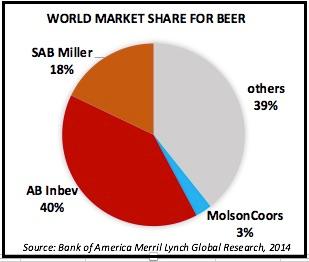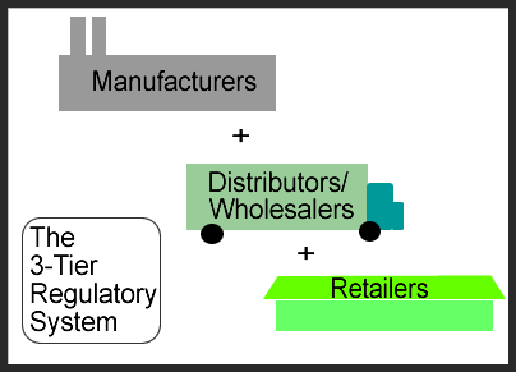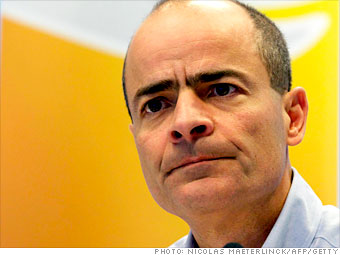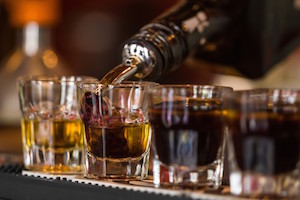Blog
Call to Action To Stop AB 1322 - The Irresponsible Drybar Bill
July 15, 2016
A veritable tsunami of alcohol-related harm could very well be in California’s forecast, as the state legislature seems determined to allow 42,000+ beauty salons and barber shops to serve free alcohol to customers. This would happen if AB 1322 - “the Drybar Bill” - is passed and signed into law by Governor Brown. Beer and wine (and surely spirits down the line) will flow freely without licenses, permits, monitoring, Responsible Beverage Service training, or enforcement of current regulations.
California now suffers more than $22 billion dollars in alcohol-related harm annually with10,000 alcohol-related deaths. Alcohol Justice has estimated that if AB 1322 becomes law the number of venues allowed to serve alcohol in the state will increase by 41%. Additional alcohol-related harm is inevitable with increased availability. Yet voices of reason are in short supply in Sacramento, while those in denial of the dangers of allowing unlicensed, unmonitored free booze push this bill through the legislative pipeline.
This irresponsible legislation would allow:
- Alcohol to be served without a license at 42,000+ new venues in California
- Alcohol to be served without ANY requirements for proper training of the barbers and beauticians on how to monitor or responsibly serve
- Alcohol to be purchased by barbershops and beauty salons without any regard for the safeguards of shipping through the established wholesale/retail tier, increasing the potential for altered products, moonshine, and tax evasion
- Alcohol to be poured and consumed in venues which invariably will include minors
- Alcohol to be served without any regard to the density of alcohol licensed outlets or consideration of proximity to schools, churches or other vulnerable institutions
- No provisions for monitoring or enforcement of the law or the meaningless restrictions included in the bill
- No proof of the necessity of this law, as no analysis even estimates current serving of drinks at salons or barber shops or demonstrates the need for the nearly complete deregulation of alcohol service at such venues
- Potential liability for drunk driving and aggressive crimes by businesses that serve beer and wine without a license, without training, and without the insurance that would normally be required of a California Department of Alcoholic Beverage Control (ABC) licensed facility.
It is a sad testament to the power of big alcohol to negatively influence government to put the health and safety of all California residents and visitors behind the special interests who proposed this drastic change to the laws that govern alcohol in California.
The only publicly visible sponsors of the bill are two hair salon chains – Drybar and18|8 Fine Men's Hair Salon. It is no coincidence that Drybar’s corporate headquarters are located in Irvine, California, a city within State Senator Tom Daly’s district. Senator Daly authored the bill.
San Rafael-based Alcohol Justice and the statewide California Alcohol Policy Alliance (CAPA) have led the opposition, which includes numerous individuals and these organizations:
• Asian American Drug Abuse Program, Inc.
• California Council on Alcohol Problems
• Eden Youth and Family Center
• FreeMUNI-SF
• Friday Night Live
• Institute for Public Strategies
• Koreatown Youth and Community Center
• Los Angeles Drug and Alcohol Policy Alliance
• Luthern Office of Public Policy - California
• Partnership for a Positive Pomona
• Paso por Paso
• Pueblo y Salud
• San Francisco DogPAC
• San Rafael Alcohol and Drug Coalition
• Saving Lives Drug & Alcohol Coalition
• The Wall/Las Memorias Project
• United Coalition East Prevention Project
• Youth for Justice
It is quite disturbing to those concerned with the public health and safety ramifications of the bill that the California Department of Alcoholic Beverage Control, the California Department of Public Health, and the California Board of Barbering and Cosmetology do not seem to be concerned at all.
Barbershops or beauty salons that wish to serve alcohol should simply apply for the appropriate license, pay the necessary fees, and be subject to monitoring, enforcement and beverage service training requirements that all other servers of alcohol in California must follow under current law and the California Department of Alcoholic Beverage Control.
When the legislature reconvenes from summer recess on August 1, AB 1322 faces one more committee vote in the Senate, and a full Senate floor vote, before heading to the Governor. Previously the bill passed through the Assembly. We implore the Senate, Governor Brown, Attorney General Harris and ABC officials to help safeguard public health and safety and reduce alcohol-related harm in California. Stopping AB 1322, the irresponsible Drybar Bill, is a necessary step in that direction.
To add your voice of reason, please TAKE ACTION here.

Why you should be worried about the impending big beer merger!
July 14, 2016

By Pamela Erickson
Healthy Alcohol Marketplace
Last October, the world's largest beer producer, Anheuser-Busch InBev (ABI), announced it would purchase the second largest producer, SABMiller. Both companies are global enterprises with ABI headquartered in Belgium and SABMiller in the UK.
Whenever the number one and number two companies combine, red flags are raised. For the US, this would mean a combined company market share of around 70%. Knowing this would raise red flags with anti-trust authorities; ABI subsequently announced they would "divest" SABMiller's US assets by selling them to MolsonCoors, the third largest company in the US market. The companies suggested this would leave the US beer market much as it is today with two major players. Of course, whether this will happen remains to be seen. The reality is that MolsonCoors loses its partnership with a bigger player (SABMiller) and must compete with an even bigger ABI.
What is clear is ABI's aggressive move to dominate the beer market to the greatest extent possible. This should not surprise anyone as this is what large corporations are about. They are governed by investors who seek increased profits. All corporate executives understand that failure to deliver ever-increasing profits will jeopardize their jobs. As a result, corporate executives strive to dominate or monopolize their market if at all possible.
This situation is of great concern because market domination of alcohol sales usually produces serious social problems. In fact, our regulatory system is specifically designed to prevent such domination due to our experience with severe problems before Prohibition.
As historian Bill Rorabaugh notes, "...in the late 1800s and early 1900s, powerful, vertically integrated distillers and brewers controlled production, distribution, and retail sales through exclusive sales outlets. Brewers and distillers forced these 'tied houses' to push sales, and in this brutally competitive market, desperate saloonkeepers doctored merchandise, served children, catered to drunkards, offered backroom gambling and prostitution, and played key roles in corrupt political machines."
We can see modern examples of market domination in the United Kingdom, Australia and New Zealand where hyper competitive supermarkets dominate markets. These companies are "vertically integrated" in the sense that they buy directly from producers in large quantities at deep discount. This enables them to promote alcohol aggressively and sell it cheaply in high volume.
All of those countries have attributed the resultant social problems to these business practices.
In establishing various states' regulations, Rorabaugh notes that, "The most important innovation...was the separation of producers, distributors, and retailers into a three-tier sales distribution system." By requiring independent tiers, the distributor insulates the retailer from the power of the producer and the producer from the power of the retailer. The system also has several other advantages. Since all producers have to use a state-licensed distributor, that makes it easier for national producers to follow each state's laws. Distributors also collect taxes and track all products for quality control. This system has been credited with the flourishing of small brewers, wineries and distilleries because regulations do not allow the business ties between producer and retailer which would keep the small guys out of the market. In addition, costs of distribution are much lower to smaller producers due to the mature, independent distribution system.
ABI has recently succeeded in moving into the small brewer, distribution and retail sectors via selective moves in areas with weak or unclear regulation. They've done it by purchasing distributors and craft brewers with retail locations. A few states allow a producer to own a distributor; and, as a result, ABI is now the top distributor by sales according to Beer Business Daily. They own 17 distributorships in 10 states. They are the fastest growing beer distributor in the country. By purchasing craft breweries from across the US, ABI has amassed a portfolio of beer products that can displace regional products. Some of those craft purchases involved brew pubs which means that ABI is now present in all three tiers of our system. Distribution and retailing are profitable businesses so they represent substantial profit growth opportunities for ABI.
ABI has also embarked on internal and external incentive programs to promote growth and market domination. Last November, they announced a program of cash reimbursements for independent distributors who sell a high percentage of ABI products. Through this program a distributor whose sales are 98% ABI products could gain as much as $1.5 million! This plan alarmed craft brewers who viewed it as a way to squeeze them out of the market. Internally, ABI set a highly ambitious goal of more than doubling current revenue by 2020. The company has challenged internal staff to help achieve this goal via performance incentives. While the company hasn't said how they will increase revenue, a large increase in alcohol sales could adversely impact efforts to reduce social problems.
Those who crafted our alcohol regulations had another concern about market domination. It was the likelihood that a dominant company would amass enough political and economic power to tear down regulatory restraints. A continued push for further deregulation is something to watch out for.
The US anti-trust authorities have not yet approved the merger. This provides an opportunity to highlight some truly critical issues such as ensuring the integrity of the three tier system. In a letter to Attorney General Loretta Lynch, several US Senators urged careful scrutiny of the merger proposal to "investigate whether distributors owned by these companies also need to be divested." They also note a concern about domination of supplies such as hops, barley, wheat, bottles and cans to the point where small brewers cannot procure such necessary products. Finally, there should be heightened concern about exclusive dealing including some assurance that past violations will not reoccur. Recently, Washington State sanctioned ABI for engaging in an exclusive agreement with a licensed establishment.
Many have noted that once mergers are approved, it is hard to get the toothpaste back in the tube! Therefore, it is important that communities, policy-makers and regulators be diligent in enforcing market rules of fairness so that large and small businesses can continue to operate profitably in our local markets.
https://www.washingtonpost.com/business/beer-merger-would-worsen-existing-duopoly-by-ab-inbev-sabmiller/2013/02/01/efa78ce8-6b1c-11e2-af53-7b2b2a7510a8_story.html
http://www.businessinsider.com/sabmiller-2015-9
http://www.wsj.com/articles/craft-brewers-take-issue-with-ab-inbev-distribution-plan-1449227668
http://m.golocalpdx.com/news/merkley-urges-doj-to-protect-craft-brewers
Quotes from Professor Bill Rorabaugh's expert witness testimony in Costco Wholesale Corp. v. Hoen, 522 F.3d 874 (9th. Cir. 2008) used with permission.
http://www.katzamericas.com/blog/beer/list-top-30-us-beer-distributors/
AB-InBev Continues Doghouse Streak
June 10, 2016

The larger this global beer behemoth grows, the less concerned or accountable it becomes for any public health harm its products and disgraceful mass marketing campaigns cause. It is a soul-less, heartless, monster profit-making machine without a shred of consciousness or honest concern for the damage it does. But make no mistake about it, while hiding behind "Drink Responsibly" there are humans running this enterprise, and making a very good living doing so. But their livelihood is predicated upon pushing legal, addictive, destructive, and toxic products. From shareholder, to CEO, from brew master, to deliveryman, they all share responsibility and all deserve a spot in the Doghouse.
Tell us what you think...click to respond on Facebook.
Click here to read the articles in our Doghouse: https://alcoholjustice.org/watchdogging/in-the-doghouse
Alcohol Kills Cells In Your Body. Is The Harm Reversible?
June 10, 2016

The above observation poses the question: Are the effects of alcohol reversible?
Although recovery can occur, alcohol kills cells in just about every part of your body. After extensive research, Dr. Koob revealed that there is a point of severity that you can not recover from. He suggests that the earlier prevention, the better. Alcohol causes an estimated 2.5 million deaths per year, making it the third leading cause of preventible death.
You can view our fact sheets on Alcohol-related Harm here:
https://alcoholjustice.org/fact-sheets/alcohol-related-harm
More Articles ...
Help us hold Big Alcohol accountable for the harm its products cause.
| GET ACTION ALERTS AND eNEWS |
STAY CONNECTED    |
CONTACT US 24 Belvedere St. San Rafael, CA 94901 415-456-5692 |
SUPPORT US Terms of Service & Privacy Policy |


